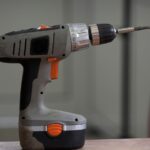Remote learning has made education available in a whole range of new ways and new places, and its popularity has been on the rise. It’s especially valuable for those without easy access to in-person learning, such as people who live in remote areas. However, there’s a major X-factor that determines whether students can access all the benefits of remote learning: internet access. Without fast broadband, students may struggle with lagging video calls and delayed uploads, or they might not be able … [Read more...]
Remote Learning Challenges in Winter: The Role of Reliable Internet Connectivity
Don’t Wait for Love, Create It: Connect, Date, Fall In Love!
In today's fast-paced world, finding love can often feel like an overwhelming challenge. With the rise of technology and a shifting social landscape, traditional dating methods have evolved, creating new opportunities and avenues for connection. Whether you are looking for a meaningful relationship or a casual encounter, the process involves understanding the dynamics of dating, the importance of connection, and the journey of falling in love. This article will explore these aspects while … [Read more...]
The Importance of Regular Heat Pump Maintenance: Preventative Tips for Homeowners
Maintaining a comfortable indoor environment throughout the changing seasons is essential for homeowners, and heat pumps are a popular choice for efficient heating and cooling. However, like any other mechanical system, heat pumps require regular maintenance to operate effectively. This article dives into the importance of regular heat pump maintenance, offering preventative tips that homeowners can easily incorporate into their routines. Benefits of Regular Heat Pump Maintenance Regular … [Read more...]
How Text-to-Speech AI Enhances Scientific Research and Patient Education
In today's fast-evolving digital world, artificial intelligence (AI) tools such as text-to-speech (TTS) software are transforming various sectors, including scientific research and patient education. Text-to-speech AI, which converts written text into spoken words, offers clear advantages in enhancing accessibility, comprehension, and user engagement. TTS tools in fields that rely heavily on complex data, like medical research and patient education, bring innovative, accessible, and efficient … [Read more...]
The Growing Demand for EV Charging Stations: Powering Up for a Sustainable Future
As electric vehicles (EVs) gain popularity, homeowners are increasingly seeking simple, efficient charging alternatives. Having a home EV charging station allows you to start each day with a fully charged battery, saving time and providing convenience. For Tesla users, adding a home charger enables for convenient overnight charging, enhancing the efficiency of their daily journey. Why Consider a Home EV Charger? Home EV chargers make electric car ownership easier and more convenient by … [Read more...]
Discover Insabulb: The Smart, Eco-Friendly Lighting Solution Perfect for Any Home
In a world where energy efficiency is more crucial than ever, innovative solutions like the Insabulb are gaining attention as the essentials of modern lighting. This cutting-edge technology promises not only to illuminate spaces but also to revolutionize how we think about energy consumption. As homeowners and businesses alike seek to reduce their carbon footprint, the Insabulb emerges as a beacon of sustainable living. Unlike traditional light bulbs, the Insabulb integrates smart technology … [Read more...]
How to Maintain Cordless Drill
It would be annoying to pull out your cordless drill and find that it needs help with a simple job. Making sure your drill works well every time you need it can depend on how well you take care of it. This blog will cover the essential steps for maintaining your cordless drill. 1. Keep the Drill Clean After each use, the drill should be wiped down with a dry cloth to remove dust and debris. The area around the vents must also be cleaned, as dust can obstruct the flow of air and cause the drill … [Read more...]
Should You Hire Shipping Containers to Streamline Your Workflow?
Companies are always looking for innovative solutions to streamline their workflows and optimize their operations. One such solution gaining popularity is the use of shipping containers for storage and logistics. But should you hire shipping containers for your business needs? This article will provide a breakdown of the benefits and considerations to help you decide. Benefits of Hiring Shipping Containers Since many businesses face challenges related to storage and resource management, hiring … [Read more...]
What You Have to Learn About Laser Hair Removal in 2024
Are you sick of shaving and waxing all the time and want a better way to get rid of hair for good? Laser hair removal is becoming more popular among people who want smooth, hair-free skin that lasts. As you move into 2024, it is important to stay up to date on the newest treatments and the best ways to use them. In this blog post, you will explore what you need to learn about laser hair removal this year. Types of Laser Hair Removal Alexandrite Laser The Alexandrite laser is a popular … [Read more...]
AI-Cyber Defense: Opportunities for Protection on the Evolving Landscape of Cyber Threats
Artificial intelligence (AI) is transforming the cybersecurity landscape, offering advanced tools that enable organizations to shift from reactive to predictive defense strategies. The integration of AI in cybersecurity systems is not only enhancing the ability to detect and neutralize threats in real time but is also driving a new era of automation. This shift allows organizations to stay ahead of increasingly sophisticated cyber threats. AI-Powered Threat Detection AI has drastically … [Read more...]




























